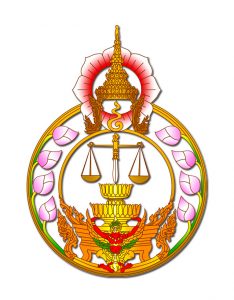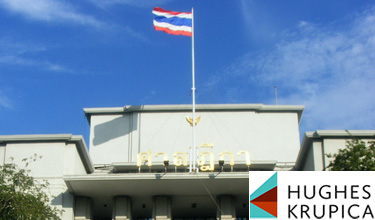 There are people in this world who bury their heads in the sand and wish that problems would go away, while others like to identify a problem and tackle it head on. There are still others who are smart enough to know that not every problem actually needs to be solved.
There are people in this world who bury their heads in the sand and wish that problems would go away, while others like to identify a problem and tackle it head on. There are still others who are smart enough to know that not every problem actually needs to be solved.
Recently we were contacted by a family who had planned to invest in Thailand by co-investment in a Thai company. However, their plans changed and they instead used a different structure for their investment. As happens sometimes, other matters took precedence and the family forgot to maintain the company. They neither appointed auditors and accountants, nor carried out any business activities with regards to the company. This inactivity lasted six years and eventually the family wanted to check whether or not to just ‘let the company die naturally’ i.e. just leave it as it was, or whether any action was required.
Interestingly, and this is often the case, making enquiries on this matter with different government departments yielded a mix of different answers.
Approaching the Department of Business Development, it became apparent that the relevant company had been denoted as ‘struck off’. The legal effect of this denotation is that technically the company should not be able to carry out any acts due to this status; it loses its ‘legal personality’ or legal standing at this time.
However, very importantly, what might have been overlooked is that the status ‘struck off’ does not protect the directors or management of the relevant company from liabilities relating to any aspects of the prior operation of the company, nor does it protect against any liabilities or penalties which may be imposed on the company.
The relevant issues which impact upon such a company are:
(a) obligations and liabilities relating to the Act Prescribing Offences Related To Registered Partnerships, Limited Partnership, Limited Company, Association and Foundation, B.E. 2499:
Under section 18, if a limited company fails to make a balance sheet, then the company shall be liable to a fine not more than 20,000 THB.
Under section 26, a person who is liable to tax shall be liable to a fine double the amount of tax payable; in addition, under section 27, in the event that person fails to pay or remit within the time prescribed under this Code, he or she shall pay a surcharge of 1.5 percent per month of the amount of tax payable or remittable, excluding additional fine.
Under section 37, the penalties for the attempts to evade or avoid tax, shall be imprisonment from 3 months to 7 years and a fine from 2,000 THB to 200,000 THB.
Under section 37 Bis, a person who intentionally fails to file tax returns in order to evade, or in an attempt to evade, tax shall be liable for a fine of not more than 5,000 THB or imprisonment for a term not exceeding 6 months or both.
(c) Obligations and liabilities relating to the Accounting Act:
Under section 28, if any person charged with an accounting duty fails to cause the accounts to be properly undertaken for the operation of business, such person shall be liable to a fine not exceeding 30,000 THB and an additional fine at a daily rate of 1,000 THB until due compliance with legal requirements.
Upon pain of company death
If you allow your company to just ‘die’, then you will left tendering to the outstanding obligations, will most likely suffer some financial penalties and pain beyond that which you might have been expecting. You should not be deceived by the fact that a company is denoted as ‘struck off’ into thinking that somehow all liabilities have magically disappeared.
The best way of managing an organised, controlled, orderly and proper winding down and cessation of a company’s activities is to organise a formal dissolution in accordance with Chapter 5 of CCC, Liquidation of Limited Company.
This requires a meeting of the Board of Directors and two separate General Meetings of the Shareholders to consider the issue of company dissolution, unless required otherwise by the Articles of Association of the company.
In addition, assets and liabilities must be dealt with so that there are no longer any outstanding debts; bank accounts must be deactivated, all employees paid, and any remaining capital of the company divided per shareholdings and paid back to the shareholders – or if no such funds are available, such is recorded.
Notwithstanding the agonizing procedures of having to deal with the accounts, or lack thereof, in the event of the death of a company if you ensure that the company is debt-free it can eventually rest in peace.
If you do have your name associated with a Thai company and you have just ‘let if go’, you are advised to consider the above and decide whether you need to take any action.
This article was first published in Window on Phuket.








